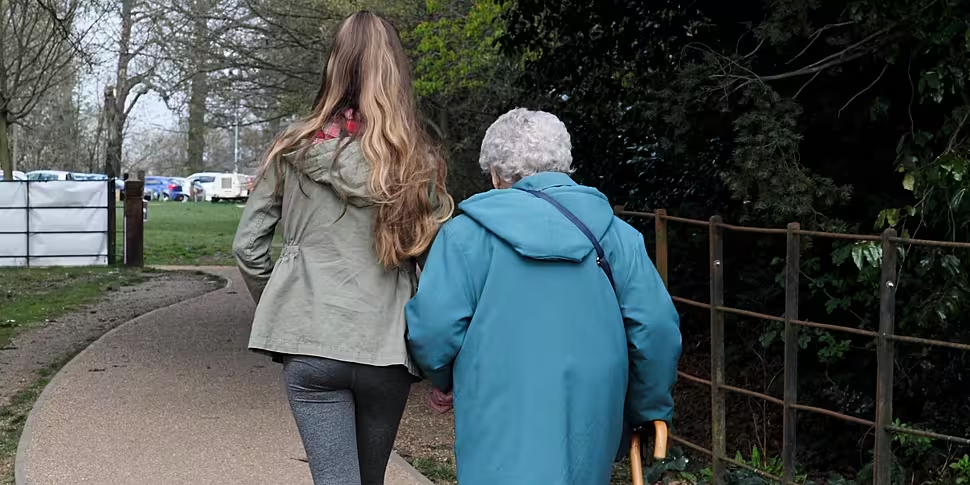Teenage carers are "significantly" less likely than their classmates to perform well in the Leaving Certificate and go on to college, a report has found.
The Economic and Social Research Institute (ESRI) has said one-quarter of 17-year-olds and one-fifth of 20-year-olds regularly care for another family member.
The study investigated the impact their caring had on their well-being, education and relationships.
In most cases, young people reported that caregiving does not take very much of their time, with just 13% saying it takes up a lot or quite a lot of their time.
Those looking after parents or grandparents spend more time on caregiving.
The report found those involved in caregiving at age 17 subsequently tend to receive lower Leaving Cert grades than their counterparts not providing care.
"This is particularly the case if they are caring for multiple family members," the ESRI said.
"Lower grades as a result of caregiving have implications for progression to higher education.
"Young carers are less likely to make this transition and when they do, they are more constrained in their institution choices, placing a strong emphasis on being able to live at home during their studies."
'Poorer well-being'
The report also said more intensive care involvement was related to higher rates of obesity and poorer self-reported health.
"Having a mother with depression was linked to poorer well-being among young adults, regardless of whether they reported providing care to them or not," it said.
"Caring for siblings or parents was associated with more positive relationships with family members; however, fighting between mothers and young adults appeared to be related to caring for younger siblings".
'It is often invisible'
The report said supports for early years provision, and a statutory home care scheme, would likely benefit young adult carers, as well as parents and those receiving care.
"Educational supports such as the School Completion Programme, if expanded to include carers as an explicit target group, have the potential to address the educational disadvantages revealed by the report findings," it added.
Report co-author Dr Helen Russell said important caregiving is often overlooked.
"Informal caregiving is an essential element of human society, but is often invisible," she said.
"This is especially true for care provided by young people.
"This study highlights the important role that care provided by young people for their siblings, grandparents and others plays in family lives," she added.
The report used a broad definition of care - including regular care provided to parents, grandparents, siblings and others - and not just those with an illness or disability.









